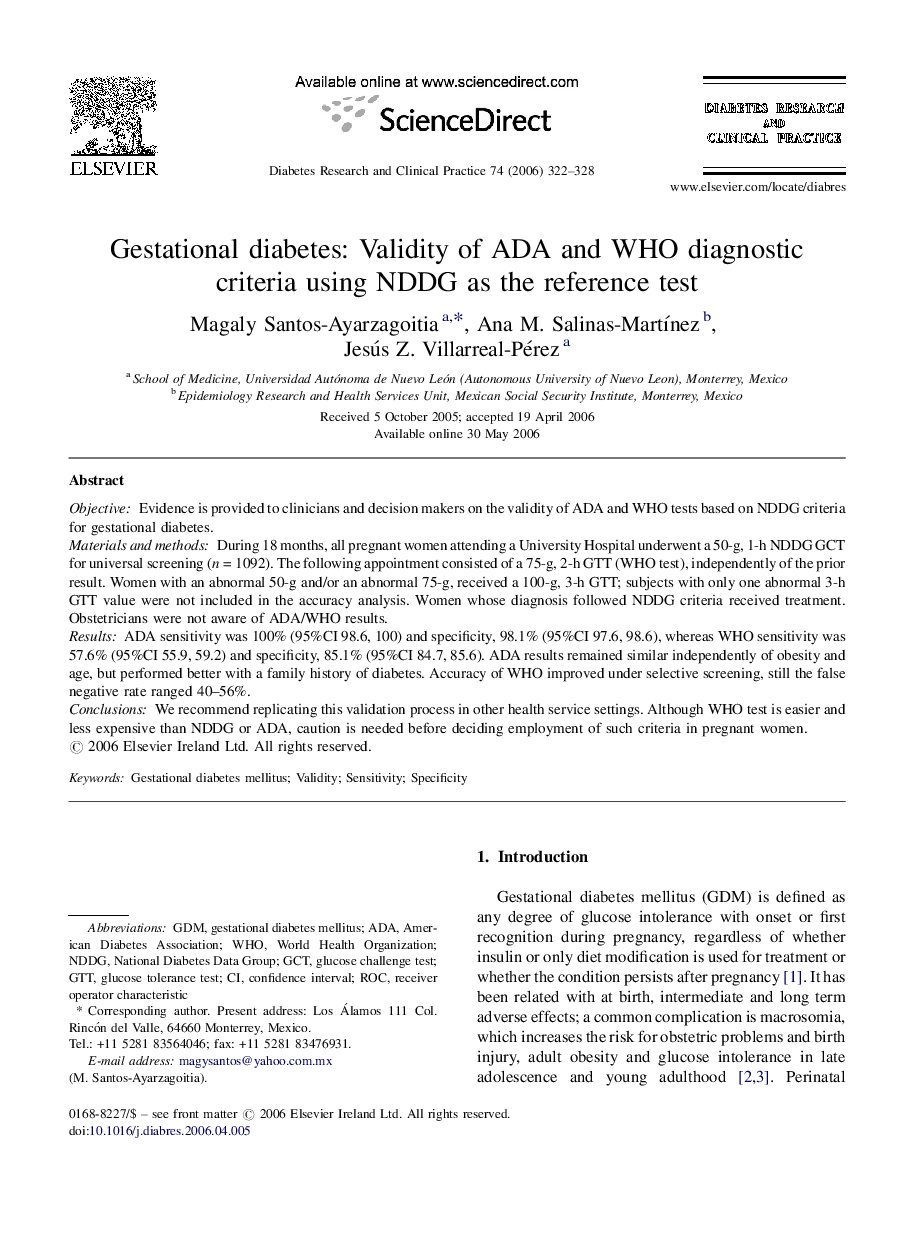| Article ID | Journal | Published Year | Pages | File Type |
|---|---|---|---|---|
| 2798736 | Diabetes Research and Clinical Practice | 2006 | 7 Pages |
ObjectiveEvidence is provided to clinicians and decision makers on the validity of ADA and WHO tests based on NDDG criteria for gestational diabetes.Materials and methodsDuring 18 months, all pregnant women attending a University Hospital underwent a 50-g, 1-h NDDG GCT for universal screening (n = 1092). The following appointment consisted of a 75-g, 2-h GTT (WHO test), independently of the prior result. Women with an abnormal 50-g and/or an abnormal 75-g, received a 100-g, 3-h GTT; subjects with only one abnormal 3-h GTT value were not included in the accuracy analysis. Women whose diagnosis followed NDDG criteria received treatment. Obstetricians were not aware of ADA/WHO results.ResultsADA sensitivity was 100% (95%CI 98.6, 100) and specificity, 98.1% (95%CI 97.6, 98.6), whereas WHO sensitivity was 57.6% (95%CI 55.9, 59.2) and specificity, 85.1% (95%CI 84.7, 85.6). ADA results remained similar independently of obesity and age, but performed better with a family history of diabetes. Accuracy of WHO improved under selective screening, still the false negative rate ranged 40–56%.ConclusionsWe recommend replicating this validation process in other health service settings. Although WHO test is easier and less expensive than NDDG or ADA, caution is needed before deciding employment of such criteria in pregnant women.
